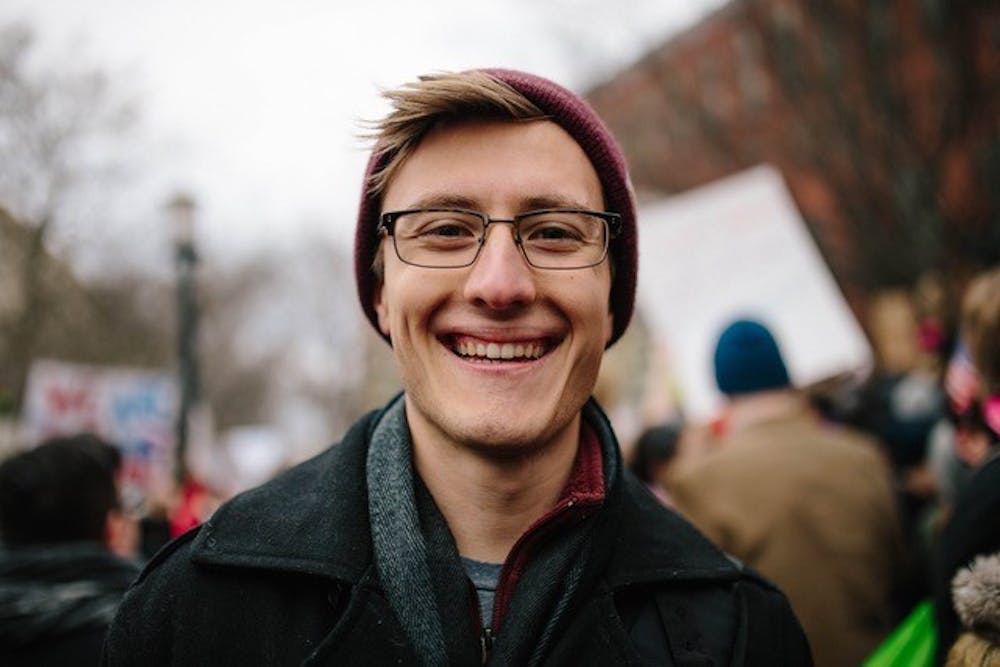People ask me, “How was it?” and I’m not sure they want to know my answer.
I had the privilege of co-leading AU’s Alternative Break to Haiti, focusing on the success and failure of international aid. Over the course of our weeklong engagement, we met with community partners, lifelong expats and Haitian university students.
Our sole focus was to listen and learn, not to build, fix or even volunteer. Yet, our very presence was in constant tension with our intended goals and perceived purpose. I would not consider anyone in my team a “voluntourist,” but the broader reality of that term deserves attention here.
Haitian history is marked in milestones of suffering. Haiti has endured wounds inflicted by man and devastation caused by nature: enslavement, political violence, foreign coercion, hurricanes, earthquakes and disease. This maelstrom of hardship overshadows the storied heroics of the only successful slave rebellion in history, and the quiet resilience of a proud people.
Common narratives of voodoo, corruption and disaster shroud Haiti in mystery, misconception and exoticism. The crisis Haiti faces today is not an earth shattering collapse, but a slow bleeding of agency and autonomy.
Tens of billions of dollars were raised in humanitarian aid after the earthquake. Records show that the majority of these funds landed in organizations’ overhead or external contracts. Aid has become a business that requires the continuation of poverty to sustain profits. The local expertise, infrastructure and agency are too often dismissed in favor of expatriate control.
Short-term missions providing unskilled volunteer labor often serve the interests of the volunteers rather than the community. Orphanages are a particularly insidious example; 80 percent of “orphans” have at least one living parent in Haiti. However, orphanages profit from well-intentioned foreign sponsors and recruit children from low-income families to increase revenue.
Our team spent two days at Organizasyon Sante Popilè (OSAPO), a rural health center in the mountains of Rousseau, north of the capital Port-au-Prince. Dr. Jean Marius Gardy, the founder, shared with us the hope of reimagining community health systems. OSAPO’s success in improving the community’s health and education has extended far beyond the walls of the clinic.
The roots of disease and ill health in the community are inextricably linked to poverty. Dr. Gardy was frank about the ignorance and arrogance he sees in foreign do-gooders. OSAPO responded to the cholera epidemic introduced by the UN in 2010, and continues to treat patients in recurrent outbreaks.
In our conversations with Dr. Gardy, Haitian university students and others we came to understand the impact of continuous foreign intervention. The damage to Haitian psychology and the disenfranchisement and dilution of agency perpetuated by foreign narratives have caused a national identity crisis.
The hard truth is we, as a global community, must recognize our complicity in the suffering of others. In our efforts to aid those in need, we have undermined the capacity of local institutions and markets to respond to their own problems.
We have unknowingly poured money into charities that perpetuate poverty. We have sent teams to evangelize an already faithful nation and disparage an ancestral faith we do not understand. We have done all of these things with compassion and good intentions in our hearts, but good intentions are not good enough. Our impacts have been adverse, and we must own these outcomes.
I write this not to condescend, but to reconcile my own participation in well-intentioned service. These lessons have been learned over seven years of lived experience in Latin America, East Africa and the islands of the Caribbean. The unique and extreme circumstances of Haiti highlight greater truths in aid work worldwide. Yet, we must safeguard our compassion from cynicism and understand that thoughtful, reflective and collaborative work can improve livelihoods globally.
Our first responsibility is to listen. We must caution our instinct to offer solutions or jump into action. Before boarding a plane or clicking “donate,” we must do our homework. Let “do no harm” be our vow. We ought not temper our compassion, but open our eyes to the realities of poverty and power abroad and at home.
Brennon Thompson is a senior in the School of International Service.





